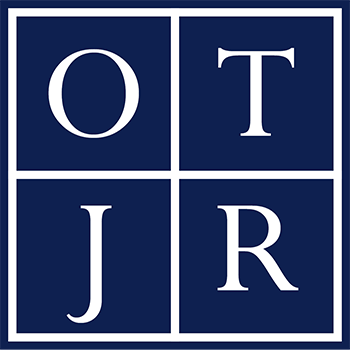Ways of Knowing After Atrocity: A Knowledge Exchange on the Methods used to Formulate, Implement and Assess Transitional Justice Processes
From January 2013 to January 2014, OTJR and swisspeace ran a project entitled, “Ways of Knowing After Atrocity: A Knowledge Exchange on the Methods used to Formulate, Implement and Assess Transitional Justice Processes”. The project was supported by the Economic and Social Research Council and run in partnership with the Dickson Poon School of Law, King's College London. The project is now completed, a 'Methods Manual' has been published and a Special Edition of the Canadian Journal of Law and Society is forth-coming. The manual was launched in Bern, Switzerland on 14 January 2014 at a panel discussion on the nexus between academic and advocacy research in transitional justice. Further details of the key findings are available on the project page.
Summary of Project Findings
This project aimed to bridge the methodological divides within the practice and research of transitional justice, making scholarly research more accessible to actors implementing responses to atrocity. As a Knowledge Exchange, the project facilitated expertise-sharing among academics and practitioners through an online forum, a seminar series, a set of practice-oriented workshops, the development of a ‘Transitional Justice Methods Manual’ and the publication of a Special Edition of the Canadian Journal of Law and Society (forth-coming 2015). These activities have generated key findings in four areas of influence:
1) Exploring the nexus between policy decision-making and research methods
Finding: A focus on research methods provides a particularly productive avenue through which to assess policy decisions relating to responses to serious human right violations in conflict zones.
Activity: OTJR hosted an on-line debate examining the role of international monitors, such as the UN Group of Experts or human rights groups, in reporting on mass conflict. The discussion centred on donor responses to recent military activities in the Eastern Democratic Republic of Congo. Jason K. Stearns, director of the Rift Valley Institute's Usalama Project debated with Phil Clark, Lecturer in Comparative and International Politics at SOAS, University of London. The discussion ran from March until May 2013 and included moderation and guest commentaries from leading academics and policy think tanks.
A focus on the process and methods used in reporting on human rights abuses highlighted key points of difference and welcome points of agreement between the contributors. Two key differences were whether donors can and should verify primary sources and whether international actors amplify or silence domestic reporting. While one clear point of agreement was that locally specific political knowledge should inform both report writing and decision-making.
2) Developing a network through research seminars and roundtable discussions
Finding: Research networks can be fostered through integrating web-based discussions with a series of research seminars and roundtable discussions.
Activities: From January 2013 to January 2014, OTJR and its civil society partner swisspeace, in collaboration with the Dickson Poon School of Law, King’s College, London and the Leuven Institute of Criminology, Faculty of Law, KU Leuven, hosted 11 public seminars and 9 roundtable discussions. With attendees from barrister chambers involved in international criminal trials, academic institutions and third sector organisations, these exchanges drew together work conducted by political scientists, psychologists, international lawyers, literary writers, human rights activists and anthropologists. Each speaker provided a written paper in advance in order to enhance the discussions and exchanges. The seminars and roundtables were integrated into the development of the new OTJR website, providing a set of pod-casts, blog posts and seminar abstracts as an on-line resources relating to the methods currently deployed in the study of transitional justice.
3) Building research capacity and fostering ethical research in transitional justice
Findings: Workshops on methods and methodologies with civil society researchers and academics in transitional countries strengthens the development of practice-oriented training materials and highlights important ethical constraints when conducting research in post-conflict or transitional contexts.
Activities: On the 16th July and 18th September 2013, OTJR and swisspeace hosted two practice-oriented workshop, the first in Kigali, Rwanda and the second in Prishtina, Kosovo. Working with locally based partners, the workshops were structured around a draft version of the ‘Transitional Justice Methods Manual’ that had been developed through the OTJR/swisspeace roundtable discussions in Oxford and London. This allowed for direct feedback and input into both the content and possible uses for the manual. Seventy participants attended the workshops, with representation from local and international Non-Governmental Organisations (NGOs), the civil service, current members of parliament and students and academics from across the two countries. Following these exchanges the manual was revised, published and launched as part of the Final Monitoring and Evaluation Meeting in Bern, Switzerland on 14th January 2014.
4) Focusing on forms of knowledge enables interdisciplinary academic research
Finding: A focus on how the form through which knowledge on human rights abuse is exchanged and transferred allows for an exchange across disciplines currently working in the field of transitional justice.
Activity: The papers prepared for the roundtable discussions were structured around the three research questions for the project that examined the different ways through which human rights violations are currently identified, the methods used to respond to them and the dominant and innovative approaches to examining the impact of these responses. In response to a competitive international call, a proposal to publish a selection of these papers as a Special Issue has been accepted by the Canadian Journal for Law and Society.

